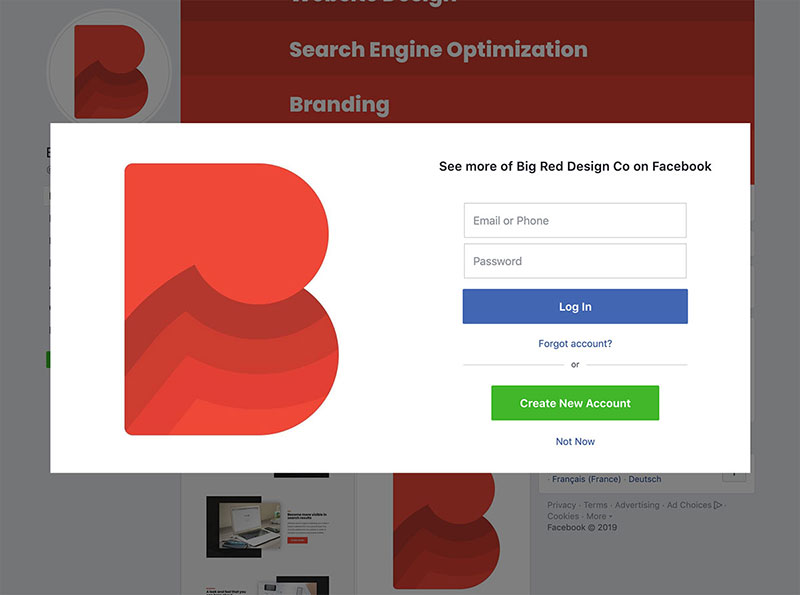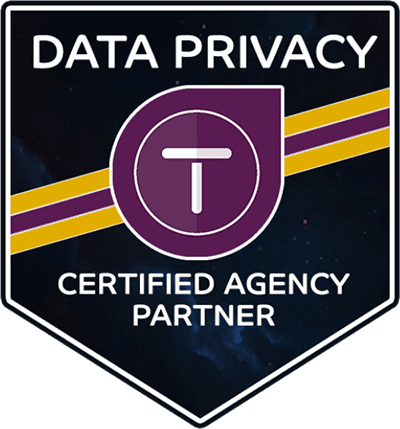Facebook is something that has withstood the test of time and survived many trends in the social networking space. It is a social platform that is always evolving to enhance its users’ experience. Over the last few years, Facebook has put a lot of effort into strengthening its overall search experience within the app. This means users can now not only search for other users, but news articles, groups, videos, products, and even businesses. It is reported that over 60 million businesses have their own Facebook page that displays not only contact information and hours but also services and the ability to purchase those services all from within the Facebook interface.
This type of functionality has many business owners asking the question: Do I really even need a website anymore if I have a Facebook page?
In short, absolutely – and here’s why:
1. Your online presence is in an environment that you have no control over
You could argue at this point in time, that Facebook isn’t going anywhere and that it is one of the more stable options on the web for being an extension of your business. You wouldn’t be wrong, however, there’s no certainty to any of that and the fate of your online presence would be completely out of your hands.Facebook is a social media network aimed to make the experience more enjoyable for the everyday human. Their algorithms are based purely on keeping their users engaged in their timeline. At any given time, their algorithm can change the way their platform handles showing businesses, or even worse, pivot away from business pages altogether. Having heard all of that, doesn’t It seem a little too risky to put all of your eggs in the “Facebook business page” basket?
With your own business website, you are in complete control of your online presence and digital footprint. If proper SEO strategies are in place, you also have better control over where you land on search engine searches. Your online presence is too valuable of a business asset to be left dependent on something you have no control over.
2. There’s still no real way to get a competitive edge
How are you actually getting the leg up on your competition when you’re all forced to adhere to the same layout, with the same options and the same lack of customization? You could create a beautiful cover photo for your business, but let’s be real. At the end of the day, all of the Facebook business pages will look and feel the same.
Let’s try out a comparison for good measure. Below I have searched for roofers in my area. Let’s compare their Facebook pages to their business website pages:


You’ll notice Facebook lets you do very little in the form of customization of your Facebook page, while the business websites all have their own [very] distinct looks that set them apart from each other.
Not every business has the same sales funnel, or the same process to generate a lead. Not every business communicates the same values, story, or culture to its audience. These are all huge factors that help you differentiate yourself from your competition. Sure, you could run Facebook ads to better target your audience, but that would cost you both money and time spent strategizing. If a potential customer does decide to click on your paid ad, where exactly are they going? Successful paid ad campaigns usually have dedicated landing pages associated with them to help ease customers into the sales funnel which is not possible on Facebook.
With your own website, you are free to deploy your business’s tone of voice, your branding, and your sales processes the way YOU see fit. You can build custom landing pages that are tailored towards wherever it is your user is coming from – something Facebook pages just simply cannot do. Love your brands’ colors? Breakaway from that generic looking blue Facebook button and use your companies colors and call to action to help communicate your brand message.
3. Facebook’s native search is fundamentally flawed
Over the last few years, Facebook has gotten its toes wet in the search engine game. Seeing that there was a large number of their users searching for different things in their search bar, they made it a point to draw a big emphasis on a Facebook search a few years ago. While there was/is definite power in the functionality, searches began just throwing the entire kitchen sink at the user based on their keywords in the form of people, pages, products, and articles. The context in which a user was searching was not really taken into account.
The idea of “SEO for Facebook search” is something that is still relatively new as the search functionality itself doesn’t do a great job at returning relevant results. For now, they have buried Facebook business pages under all of the other business pages that paid them to be there. The idea of paying for a spot in search engines is not new and one could argue Google does it as well. Google also allows users to use specific strategies to rank higher organically. This LinkedIn article suggests that ranking high on Facebook search simply entails filling your profile out. Not very helpful, is it?
A website with a tactical search engine optimization strategy will be primed to get your business’ website organic traffic. Until someone asks you to “Facebook it” instead of “Google it” when they are curious about looking something up, it is safe to say a business website with a proper SEO strategy outweighs a Facebook page.
4. Even though billions of people use Facebook, it’s still a closed circle.
Like any other web based business, Facebook profits more when people are actually using it. That means they offer the richest experiences to the people who are actively logged in to their account. Have you ever tried to access your Facebook business page while you are not logged in? You could go and try this right now, but I will save you the trouble:

Not only are you prohibited from viewing the content you were trying to see, but you must enter in your credentials to see them. These 2 bumps in the road are points of friction for the user and will always increase the chances of them abandoning the site (and seeing anything your business has to offer).
Fortunately, a website is whatever you want it to be and if you don’t want someone to need credentials to view all it is your business has to offer – so be it! The easier it is for anyone to view your website, the more likely it is to succeed.
5. Your potential customers are all distracted
Until Facebook search becomes a viable option for users looking for anything, Facebook will be best used as a social networking tool. You can do a good job at creating content consistently to show up in their timeline, but unfortunately, that is where it will live when you want someone to consider you.
That post you created about the new sale you are running or the new product you are selling? That is now getting lumped in the Facebook timeline right in between Sally’s #10YearChallenge and the photo Carl just took of his tuna melt – or worse, one of your competitors. Then there are the constant notifications, friend requests, and messages that are all fighting for the same real estate that your business is. Can you imagine trying to capture someones attention in a real-life situation with all of those distractions going on?
Your website is a more intimate setting where YOU get to set the mood. You control the experience, and you have their undivided attention. Customers are a lot more likely to remember your business, sign up for your mailing list or buy your product out of intent when they are free from distraction.
In conclusion
There’s no arguing the weight that Facebook holds in our everyday lives. It is a monster of a network for interacting with almost anyone or anything. It is doing an okay job at being a search engine, however, it will never meet the needs of a business that wants to completely control their sales process and messaging. It has its place, and its benefits can be massive as a business tool, when it is used in conjunction with your business website, but at the end of the day:
You need a website for your business, plain and simple. After all of the benefits mentioned above, we still haven’t factored in the endless amounts of data you can collect with a website on your visitors that Facebook doesn’t have. Over time, you can read the trends in this data and pivot your website to your users needs accordingly.
The pros of a customized business website extend much further than any ‘Like’ ever will.
What goes into a successful website project?
Download our free guide to learn the secrets to a successful website project, featuring tips that you can implement right away!



 and
and 